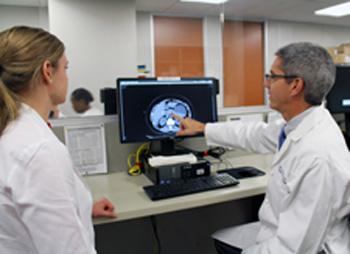
If the pancreatic cancer has spread (or metastasized), or if the cancer grows back, palliative surgery and treatment might be recommended. The purpose of palliative treatment is to provide relief from the symptoms of the cancer, and may include the following:
Endoscopic stent placement. If the tumor is blocking the bile duct, an endoscopic (scope) procedure may be done to place a thin tube (stent) to drain the bile.
Celiac block. Injection of medicine around the nerves that are being pressed by the tumor, providing pain relief.
Radiation therapy (with or without chemotherapy) may also help with pain by shrinking the tumor.
Pain medicine. Long acting narcotics in the form of pills or a skin patch are a very important part of palliative care.
Nausea medicine. Pills to combat nausea and promote emptying of the stomach.
Appetite stimulants. Medicine to improve appetite.
Nutritional supplements. High calorie liquid food to supplement dietary intake.
Biliary enteric bypass. If the cancer is blocking the bile duct and/or small intestine the surgeon will make a new path around the blocked areas by sewing the intestine to the bile duct and stomach above the areas of blockage. It is uncommon for this procedure to be necessary because less invasive palliative measures are now available.








